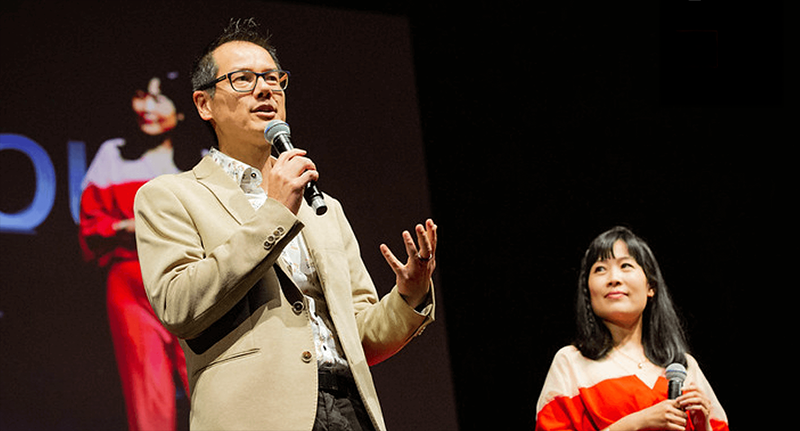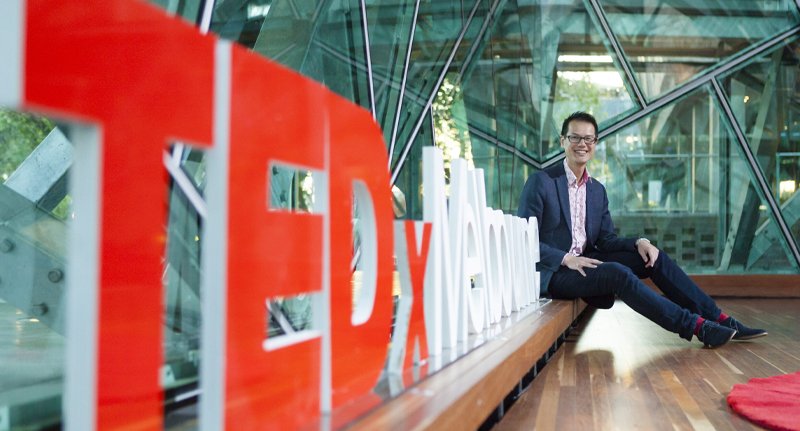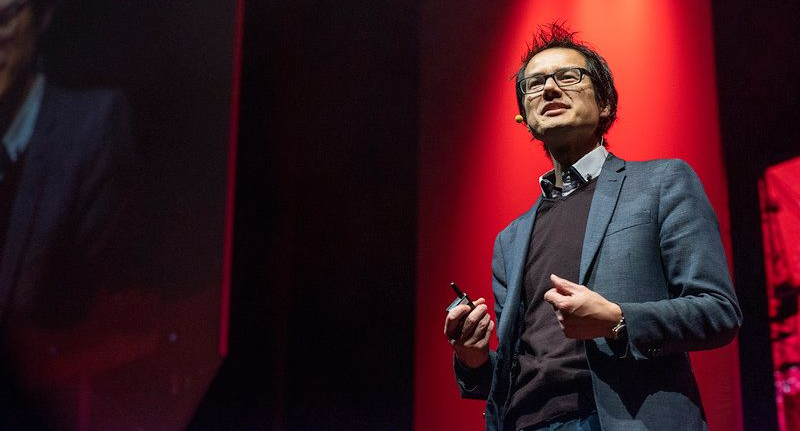Jon Yeo has been behind TEDx Melbourne since 2009, making him the longest-serving licensee in Australia.
What began as the country’s first TEDx event has evolved into a testing ground for radical ideas. Audiences don’t just watch talks. They actively shape experiences that push thinking beyond conventional boundaries.
Psychographics over demographics
Yeo’s data-driven approach sets TEDx Melbourne apart from the start.
He captures detailed psychographic information from ticket buyers. He asks about hobbies, supported charities, and websites that represent them as people. And most actually tell him!
“It’s often mindsets and capabilities, not demographics,” he says. “I was talking about psychographics and attitude and sentiment 16 years ago.”

Jon Yeo at a TEDx Melbourne event talking ‘Ideas Worth Spreading’
This method allows him to predict event success before sending the first marketing email. “We sell out in hours,” he notes.
The stakes remain high. TEDx Melbourne’s license expires after each event and only renews if the Net Promoter Score stays within 10 percent of the global average. Recent events score between 85 and 98.
Competing in a crowded landscape
The ideas conference landscape in Australia has intensified considerably. SXSW Sydney launched in 2023 and attracted over 92,000 attendees from 56 countries to its 2024 edition. The event delivered 1,400 conference sessions alongside music, screen, and gaming festivals.
The business models operate at entirely different scales. SXSW Sydney runs as a multi-pillar cultural festival with government backing from Destination NSW, filling venues across the city with international headliners.
TEDx Melbourne sells out 300 to 500 seats through community networks. Volunteer labor. No paid advertising. Psychographic targeting and provocative content that spreads organically.
“We’ve never deviated from that,” Yeo says. “We sell out in hours. We don’t need to advertise. We need to have meaningful conversations.”
While TEDxSydney partnered with the University of Sydney in 2024 for a series of smaller salon-style events throughout the year, Yeo maintains his focus on depth over scale.
TEDx Melbourne targets what Yeo calls “resident experts” and facilitates deeper philosophical exploration.
“It’s more advanced now. It’s more sophisticated. It’s harder to compete. But the principles haven’t changed,” he says.

Jon Yeo and friends in 2009, as he became licensee of TEDx Melbourne
Shifting the needle on passive thinking
“Our ultimate goal, whether we do talks or, you know, blog posts, is to change the way people think and feel about the world they live in,” Yeo explains.
He asks: “How do we shift the needle in the complacency and the passenger lifestyles or the passive thinking that a lot of people have?”
Now, Yeo says that the audience demand for interactive, future-focused content is “growing at a pace that we can’t keep up with.”
No more sitting and clapping
Yeo runs between one and four events annually. This includes a major annual gathering and smaller topic-specific satellites. Recent attendance ranges from 300 to 500 people for live events, supplemented by 80 to 300 remote participants.
The format has shifted dramatically from traditional stage presentations.
“People want to have something a little bit novel and different rather than just sit and be passive,” Yeo notes. “They want to participate. They want to communicate. They want to engage.”
This trend toward facilitated interactions and designed experiences has dominated for the past four to five years and shows no signs of slowing.
This provocative content strategy attracts exactly the audience Yeo targets. One standout example involved a Melbourne lab that reverse-engineered skin cells into brain cells.

80,000 lab grown brain-cells attached to a computer chip learned to play pong
Researchers placed 800,000 of them on a computer chip. Within five minutes, the cells learned to play Pong.
Yeo uses this to challenge conventional thinking: “We used to think of intelligence as a coordinated act towards a definitive outcome. But if it’s a biological response to stimulus, maybe you need to redefine intelligence.”
It’s content designed to spread through word-of-mouth among curious, future-focused communities.
Looking ahead
“How do you take an idea to an extreme, to realise that we’re heading in a direction that no one’s even thought about?” he asks.
That question drives his plans for the future. Yeo wants to deepen community engagement and redesign offerings for greater inclusivity across neurodiversity, disability, and cultural perspectives. The timing feels right.
“Especially in Victoria, it’s been a bit of a flat spot for five years. It’s actually on the uptick,” he says. “The sentiment, the energy, the attitude, the enthusiasm, the interest are all growing really, really fast.”

A younger Jon Yeo representing at TEDx Melbourne… Destined to sell out events without paid ads
His approach remains rooted in pattern recognition and data analysis. He monitors 40 to 50 podcasts and RSS feeds, scanning headlines every three to seven days to identify emerging themes before they hit mainstream consciousness. When multiple sources converge on a topic, he drills down.
“I’m a nerd,” he admits, which might be the least surprising revelation in this entire conversation.
But that analytical foundation creates something that others struggle to manufacture. Jon’s talking about structured, meaningful conversations with a community he describes as “very future-focused, open-minded and optimistic.”
For marketers chasing authentic engagement, Yeo’s 16-year track record offers a clear lesson. Know your audience deeply. Give them something genuinely provocative to talk about. Then get out of the way and let them do your marketing for you.

